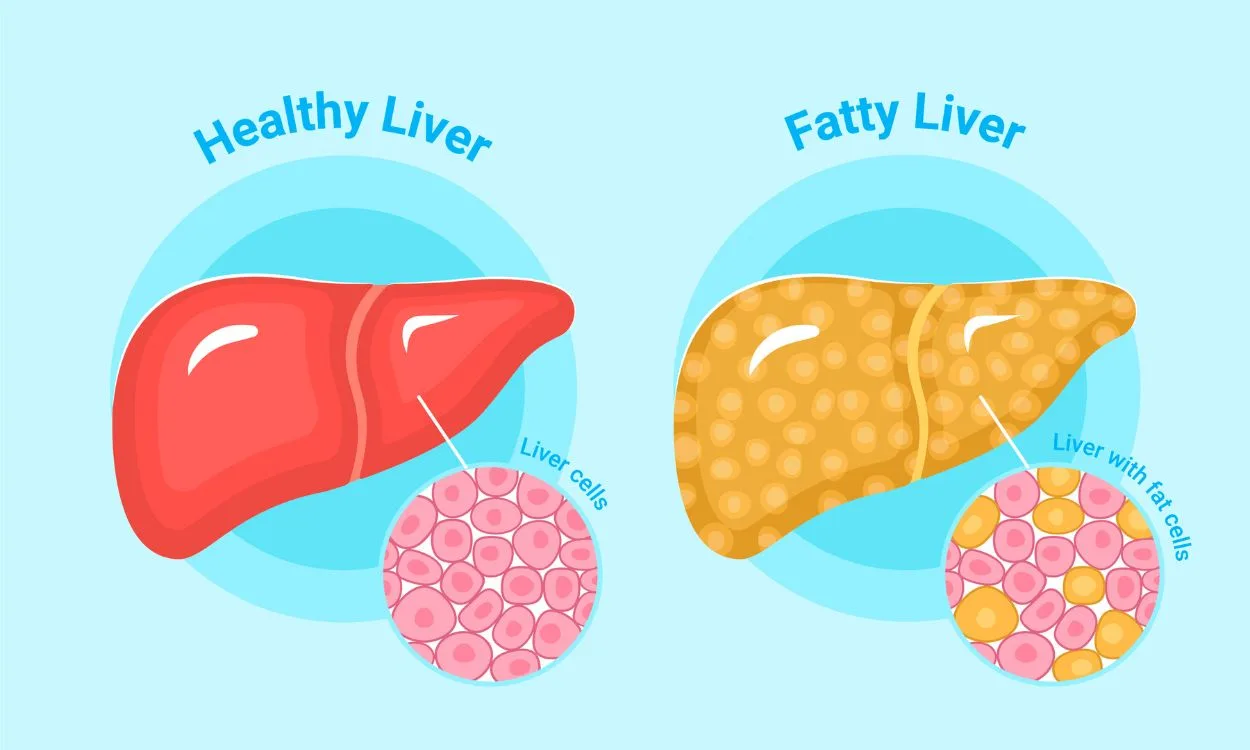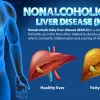What is Fatty Liver?
Have you ever heard of fatty liver? It’s a condition that is becoming increasingly common, especially with the rise in unhealthy lifestyles and poor dietary choices. In this article, we will delve into the details of fatty liver, its causes, symptoms, and potential consequences. So, let’s get started!
Understanding Fatty Liver
Fatty liver, also known as hepatic steatosis, is a condition characterized by the accumulation of fat in the liver cells. This build-up of fat can interfere with the liver’s normal functioning and lead to various health issues. There are two main types of fatty liver: alcoholic fatty liver disease (AFLD) and non-alcoholic fatty liver disease (NAFLD).
Alcoholic Fatty Liver Disease (AFLD)
As the name suggests, AFLD is caused by excessive alcohol consumption over a prolonged period of time. Alcohol is processed by the liver, and excessive intake can overwhelm the liver’s ability to metabolize it. This leads to the deposition of fat in the liver cells, resulting in alcoholic fatty liver disease.
Non-Alcoholic Fatty Liver Disease (NAFLD)
NAFLD, on the other hand, is not associated with alcohol consumption. It is primarily linked to lifestyle factors such as obesity, insulin resistance, and high levels of visceral fat. This type of fatty liver is commonly seen in individuals who lead sedentary lifestyles, consume a high-calorie diet, or have certain medical conditions like diabetes, high blood pressure, or high cholesterol.
Symptoms of Fatty Liver
Fatty liver is often a silent condition, meaning it may not cause any noticeable symptoms in the early stages. However, as the disease progresses, some people may experience the following symptoms:
- Fatigue
- Weakness
- Weight loss or loss of appetite
- Abdominal discomfort or pain
- Jaundice (yellowing of the skin and eyes)
- Swelling in the legs and ankles
It is important to note that these symptoms can vary from person to person, and some individuals may not experience any symptoms at all. Therefore, if you suspect you may have fatty liver, it is crucial to consult a healthcare professional for an accurate diagnosis.
Complications of Fatty Liver
If left untreated, fatty liver can lead to more severe complications. One of the most common complications is liver inflammation, known as non-alcoholic steatohepatitis (NASH). This condition can progress to fibrosis (scarring of the liver), cirrhosis (advanced liver scarring), and even liver failure in some cases.
Additionally, fatty liver increases the risk of developing other serious health conditions, including:
- Type 2 diabetes
- Cardiovascular disease
- Kidney disease
- Metabolic syndrome
- Certain types of cancer
Prevention and Management
The good news is that fatty liver can often be prevented and managed through lifestyle modifications. Here are some strategies that can help:
- Maintain a Healthy Weight: Excess body weight, especially around the waist, is a significant risk factor for fatty liver. Aim for a healthy weight through a balanced diet and regular exercise.
- Adopt a Healthy Diet: Include plenty of fruits, vegetables, whole grains, lean proteins, and healthy fats in your diet. Avoid sugary foods, processed snacks, and fried foods.
- Limit Alcohol Consumption: If you drink alcohol, do so in moderation. Excessive alcohol intake can lead to AFLD, worsening fatty liver disease.
- Stay Active: Engage in regular physical activity to reduce visceral fat and improve insulin sensitivity. Aim for at least 150 minutes of moderate-intensity exercise per week.
- Manage Underlying Conditions: If you have medical conditions like diabetes or high blood pressure, work with your healthcare provider to keep them under control, as they can contribute to fatty liver.
Introducing Fitpaa – Your Partner in Health and Fitness
If you are concerned about fatty liver or want to improve your overall health and well-being, Fitpaa can be your trusted companion. Fitpaa is an AI-driven metabolism monitoring and management technology that can help you achieve your health and fitness goals. By optimizing your metabolism and providing personalized fitness plans, Fitpaa aims to support you on your journey to a healthier life.
Fitpaa offers a comprehensive approach to health and fitness, including medical nutrition therapy, medical exercise therapy, and cognitive behavior therapy. With a team of expert fitness coaches, nutritionists, and doctors, Fitpaa is dedicated to helping you achieve your goals with guaranteed results.
The Fitpaa app provides a range of tools and features to make following your personalized fitness plan easy and convenient. From virtual workout trainers to diet trackers and performance tracking, the app has everything you need to stay on track.
So, if you’re ready to take control of your health and embark on a transformative journey, download the Fitpaa app today. Your well-being is their mission, and with Fitpaa by your side, nothing is impossible!









